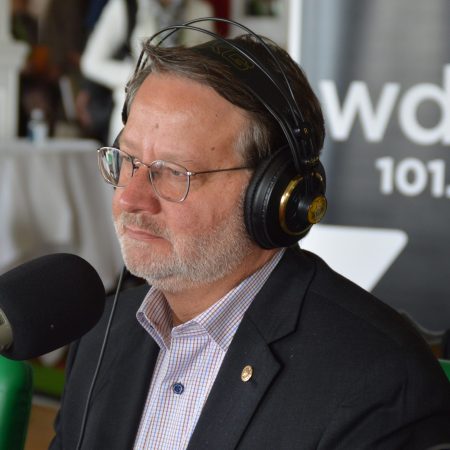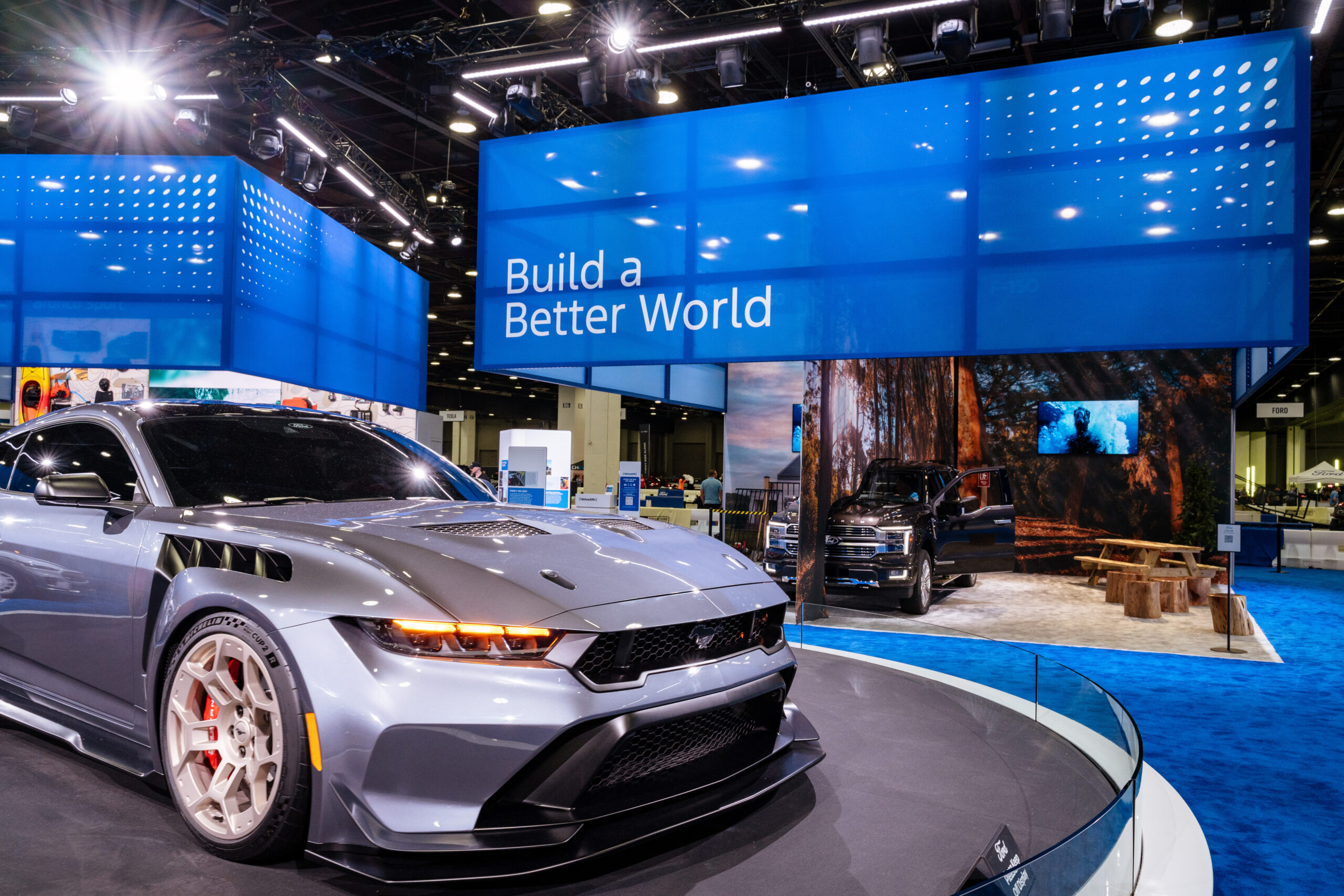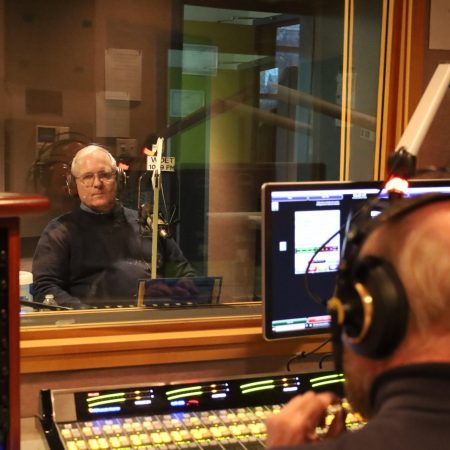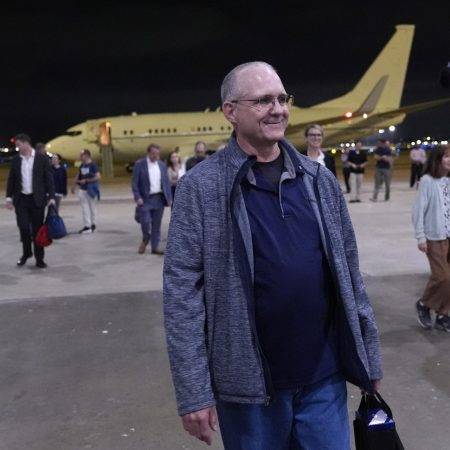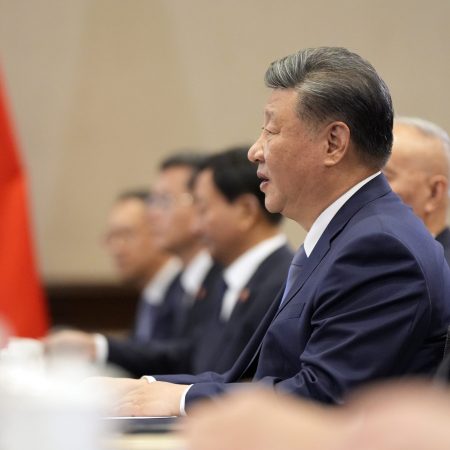Democratic US Sen. Gary Peters says he’s already working with former campaign foes
Many members of Congress are now working with colleagues they tried to help defeat in the recent election.
That includes Michigan’s senior U.S. Sen. Gary Peters, who led the effort to defend Democratic candidates in the Senate.
Peters recently supported GOP-sponsored legislation to expand detaining undocumented immigrants to those convicted of theft, what’s known as the Laken Riley Act. He also met with President-elect Trump’s nominee for U.S. Commerce Secretary.
In an interview with WDET, Peters discussed his efforts to reach across the aisle, as well as his legislative priorities around building a more resilient and self-sufficient U.S. supply chain.
Listen: Gary Peters discusses supply chain goals, finding common ground
The following interview has been edited for clarity and length.
Quinn Klinefelter, WDET: Do you get a sense that the incoming Trump administration will veer far away from the CHIPS Act and some of the other things the Biden administration was doing as it relates to manufacturing?
U.S. Sen. Gary Peters: I talked a fair amount about the CHIPS Act and understanding that you have to have secure supply chains. That it’s not just about final production in the United States, it’s the entire supply chain. We saw what happens when we are overly dependent on foreign chips. Every automobile is basically a computer on four wheels with a massive number of chips. When we had the shortage and disruptions in the supply chain during the pandemic, we saw parking lots filled with automobiles and pickup trucks and other vehicles that couldn’t be delivered because they were missing a few chips. We cannot be dependent on foreign manufacturers for vital components. That’s important. I stressed how the investments that are being made in the CHIPS Act is leading to greater self-sufficiency and resilience in the supply chain. He seemed to be open to that, but I think we have to continue to pressure the Trump administration to understand how important the entire supply chain is.
QK: As you know as well as anybody, one of the issues President-elect Trump was pushing on the campaign trail was trying to deport undocumented workers. They had the recent bill come up about the Laken Riley Act and you indicated you support that legislation. Why is that?
GP: We need to make sure our borders are secure and we have to protect Americans. Bottom line. And I think that’s a bill that we can find some common agreement on, that if people are committing crimes, they certainly should face consequences.
QK: Do you have any concerns that there should be a line drawn somewhere in terms of what they’ve talked about as a massive deportation effort?
GP: Certainly there are lines, there’s no question, but I think there are areas where we can find common ground. And undocumented people who are criminals certainly should not have any protections, they’ve committed a crime. But it is obviously different if we start looking at mass deportations. I’ll have to wait to see what that proposal is. But I think it’s important for us to find common agreement when we can. And when we can’t, certainly draw a very bright line.
QK: You talk about common ground. That’s not seemed to be easy to find politically for a while now. It seems to be so divided. From your interactions at the moment, how well do you think you can work with either the incoming congressional leadership from the GOP or with the people from the Trump administration?
GP: I’m always hopeful I can do that. Certainly in my past history, I’ve always been ranked as one of the most bipartisan senators. In fact, Georgetown University ranks bipartisanship and in the last Congress, I was the most bipartisan Democrat. The new majority leader, Sen. John Thune, is actually someone who I’ve worked with for many years on auto issues, particularly self-driving automobiles. Both Sen. Thune and I have been partners working to promote that technology and working closely with the auto industry. And I would expect that to continue.
QK: The Postmaster General had mentioned again the possibility of privatizing the U.S. Postal Service. Do you have any views about that, since you’ve been one of those that have been overseeing the agency for a while?
GP: Absolutely not. We’re not going to privatize the U.S. Postal Service. The USPS is actually written into the U.S. Constitution, that’s how important the Postal Service is. It’s the only place that delivers to every single address in the country. It’s absolutely vital to bind our country together and it needs to continue to exist as it is.
Read more:
- Pete Hegseth vows to bring ‘warrior culture’ if confirmed as Trump’s defense secretary pick
- The Metro: Is owning a home still part of the American dream?
- Michigan faces rosier revenue, budget picture with new projections
Trusted, accurate, up-to-date.
WDET strives to make our journalism accessible to everyone. As a public media institution, we maintain our journalistic integrity through independent support from readers like you. If you value WDET as your source of news, music and conversation, please make a gift today.
The post Democratic US Sen. Gary Peters says he’s already working with former campaign foes appeared first on WDET 101.9 FM.
